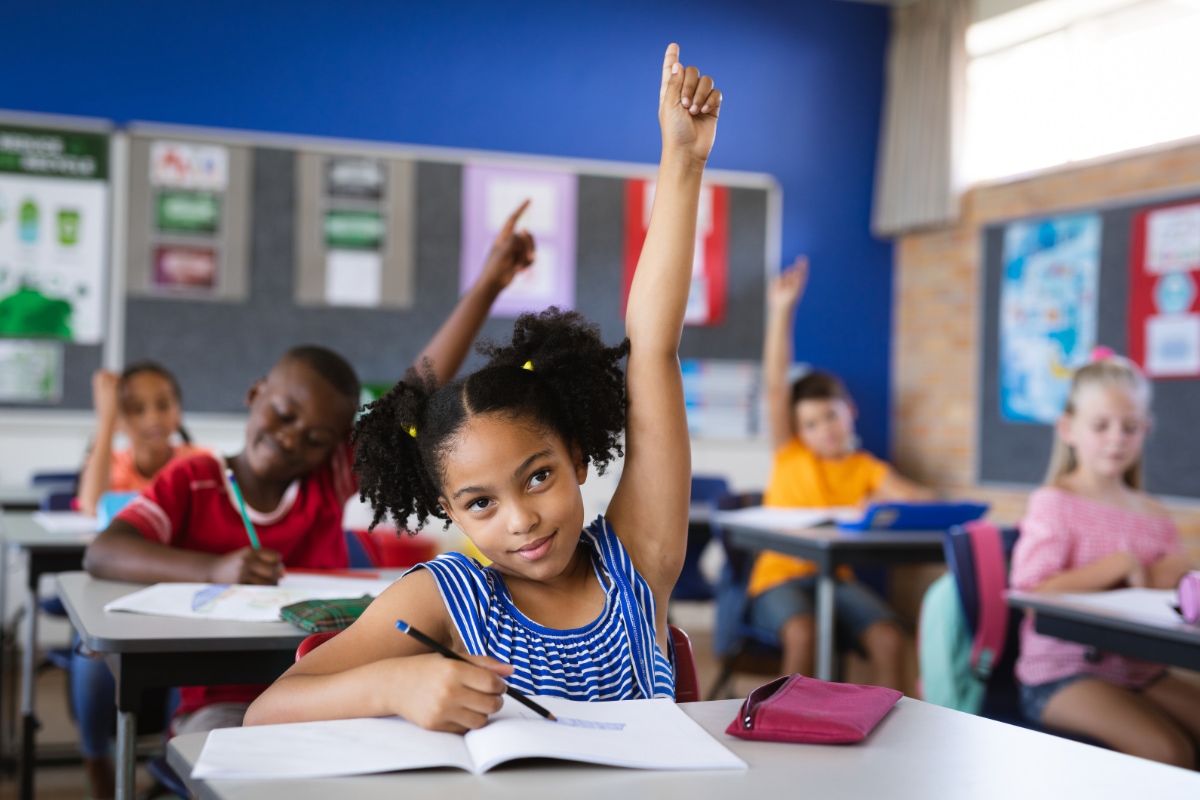How Schools Play a Critical Role in Shaping Future Leaders and Innovators
By integrating project-based understanding and interdisciplinary studies, educational organizations challenge trainees to examine and synthesize complicated info. Teachers offer as mentors, guiding students and supporting their potential, while extracurricular activities further create management skills and resilience.
Cultivating Crucial Believing
In today's rapidly evolving world, fostering crucial assuming within instructional institutions has actually come to be critical. As society grapples with significantly complicated international challenges, the ability to analyze, review, and manufacture info is crucial. Institutions play an important duty in developing these abilities, preparing pupils to browse and address complex troubles with educated, reasoned decisions.
To grow essential thinking, instructors use various pedagogical techniques that urge energetic knowing and intellectual engagement. Classroom conversations, problem-based discovering, and Socratic examining contribute in promoting reflective and logical thought processes. By testing students to interrogate presumptions and think about numerous point of views, these techniques make sure a deeper understanding of subject beyond rote memorization.
Moreover, incorporating vital assuming across the educational program enhances its significance and applicability in diverse contexts. Topics such as mathematics, scientific research, history, and literary works each offer unique possibilities to create students' vital faculties. Examining historic events calls for recognizing and assessing sources context, while clinical questions needs extensive hypothesis testing and evidence-based thinking.
Ultimately, instilling crucial assuming skills in students equips them with the cognitive devices needed for long-lasting understanding and versatility. It is through this fundamental capability that future leaders will be able to innovate, solve troubles, and add meaningfully to society.
Motivating Imagination
Embracing imagination within instructional frameworks galvanizes trainees to think beyond standard boundaries and explore ingenious solutions. By incorporating creative ventures and creative reasoning workouts into the curriculum, institutions cultivate an atmosphere where originality and imaginative thought are valued. This technique not just enriches the academic experience however likewise equips pupils with the ability to take on real-world difficulties in novel means.
Educational institutions can foster creativity via diverse methods such as project-based discovering, interdisciplinary research studies, and the unification of arts and modern technology. Project-based learning, for instance, encourages students to apply their understanding in functional, commonly joint, tasks that require inventive analytic skills. Interdisciplinary studies permit students to attract connections in between different topics, thus expanding their point of views and boosting their imaginative capacities.
Moreover, offering pupils with chances to involve with arising modern technologies, such as coding and digital layout, even more supports their innovative possibility. These activities trigger students to experiment, fall short, and repeat, which are vital components of the creative procedure (Save Temecula Schools). By maintaining a helpful setting where testing is motivated, schools can guarantee that students establish the confidence to go after ingenious ideas
In significance, nurturing creative thinking in academic settings is important for forming future leaders and pioneers with the ability of attending to complicated international concerns with ingenuity.
Encouraging Partnership

Applying group-based learning modules and participating projects enables trainees to experience the dynamics of synergy firsthand. This not only prepares them for the collaborative nature of contemporary workplaces but additionally supports management qualities as they usually have to tackle roles such as project supervisors or team organizers. In addition, cooperation in the class can damage down social obstacles and advertise inclusivity, making certain that each pupil really feels valued and heard.
Furthermore, integrating modern technology can additionally support joint initiatives. Tools like common digital work areas and interactive systems make it possible for trainees to collaborate efficiently, also outside the classroom. As pupils develop these collective skills, they are much better outfitted to take on intricate difficulties and innovate, preparing for their future duties as innovators and leaders.
Function of Educators as Mentors

Mentorship includes individualized focus, where instructors recognize and support specific staminas and address have a peek at this website weak points. Save Temecula Schools. Via individually communications, educators can customize their guidance and assistance to satisfy each pupil's one-of-a-kind requirements, promoting a sense of self-confidence and durability. This personalized strategy grows a development state of mind, motivating pupils to see failures as possibilities for discovering and development
Additionally, educators work as good example, demonstrating the values of willpower, empathy, and honesty. Their actions and attitudes supply a plan for students to mimic, instilling a feeling of moral duty and social recognition. By developing a comprehensive and encouraging classroom environment, teachers allow pupils to establish social abilities that are essential for effective management.
Fundamentally, the mentorship offered by educators lays a fundamental framework for the advancement of future leaders, furnishing them straight from the source with the knowledge, abilities, and values needed to master an ever-evolving world.
Effect of After-school Activities
When integrated successfully right into the instructional structure, extracurricular tasks considerably improve pupil advancement and leadership possibility. These activities offer trainees with chances to explore passions past the conventional educational program, cultivating a versatile ability collection. Clubs, sporting activities teams, and arts programs grow essential high qualities such as team effort, time administration, and strength. Involvement in these tasks typically calls for trainees to take on duties, thus nurturing their leadership capabilities.
In addition, extracurricular involvement urges creativity and development. Trainees took part in dramatization, argument, or music clubs learn to think critically and strategy issues from diverse point of views. These experiences instill confidence, making it possible for pupils to articulate their concepts and take campaign in different setups. By teaming up with peers from various histories, trainees additionally develop empathy and communication abilities, necessary characteristics for future leaders.
Research study suggests that students involved in such programs have a tendency to have greater qualities and much better attendance records. Hence, institutions that focus on a well balanced strategy to education and learning, incorporating robust extracurricular programs, are extra likely to create innovators and leaders equipped to meet the difficulties of the future.

Final Thought
In verdict, colleges dramatically form future leaders and trendsetters by supporting important reasoning, imagination, and cooperation among students. Involving pedagogical approaches such as project-based knowing and interdisciplinary research studies play find out here an important role in this advancement. Educators, acting as advisors, give necessary support and assistance, while after-school activities better improve management prospective and durability. By promoting a supportive setting that values individual staminas and team effort, schools equip pupils with the required abilities to browse future challenges and drive technology.
As pupils develop these collaborative skills, they are much better outfitted to deal with complex difficulties and introduce, laying the groundwork for their future roles as trendsetters and leaders.
By promoting essential reasoning and problem-solving abilities, instructors aid pupils browse intricate difficulties, preparing them for leadership roles in numerous fields.
By working together with peers from different backgrounds, students also develop compassion and interaction skills, essential qualities for future leaders.
In verdict, schools considerably form future leaders and trendsetters by supporting critical reasoning, imagination, and collaboration among pupils. By fostering a helpful environment that values private strengths and synergy, institutions equip trainees with the necessary skills to navigate future difficulties and drive development.